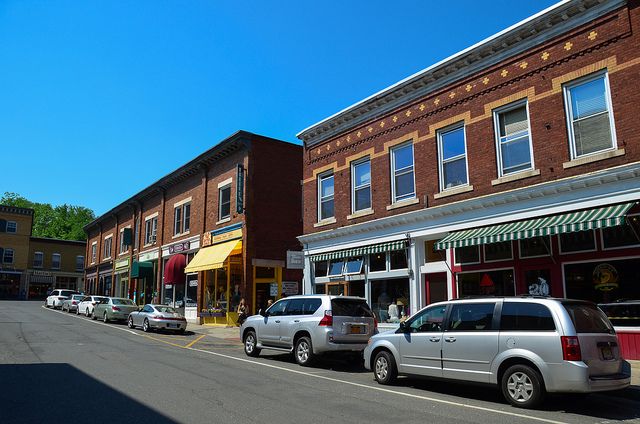BerkShares, the homegrown currency of Massachusetts’ Berkshire region, is getting a new round of press attention of late, including this piece on PBS NewsHour. Alongside enjoyable interviews with local business owners, the report contains this nugget:
[BerkShares coordinator] Alice Maggio is working hard to add even more businesses, is eying a scheme to issue more BerkShares as so-called productive loans to local businesses by fronting them the currency to start up or expand. Ultimately, she also hopes to untie BerkShares from the U.S. dollar.
That’s a fairly big deal. BerkShares at the moment functions much less as an alternative to the U.S. dollar than an add-on to it that encourages local spending.
“BerkShares is just a way to keep money within the community,” a local inn owner tells PBS, and the gentle nudge at work is that you can buy one BerkShare for 95 cents. The bill retains the value of a dollar, though, as long as it’s used for in-network trade. Cashing it out to spend it in non-participating businesses or outside the 10-mile radius of its use is when you lose the value. That’s what encourages you to spend it at the local bookstore instead of Amazon.
Susan Witt, executive director of the E.F. Schumacher Society that manages the BerkShare program, has explained it this way:
The classic way that money is issued is for productive loans, and the classic productive loan goes to the farmer in the spring for seeds. As a community we create currency and issue it to the farmer for seeds because that $500 of new money will yield $10,000 of cabbage, carrots and basil in the fall. We’ll have a little bit of money chasing a large amount of produce. Our currency that we create as a community is going to hold value. That’s where we’re headed with BerkShares. At the moment, we’re just a very beautiful and sophisticated local coupon, but built in is the capacity to move to making productive loans that the community needs. At that point, it will be new money, not saved money, and we need not charge interest.
From “just a very beautiful and sophisticated local coupon,” then, to a true alternative currency. One way BerkShares now differs from, say, a cryptocurrency like BitCoin is that there’s no real benefit in hanging on to or even hoarding it. A BerkShare and a dollar are essentially the same thing, but for the self-imposed geographic limitation and a smidgen of discount that doesn’t get you, right now, all that much additional buying power.
Decoupling the BerkShare from the dollar and using it to make loans, should that happen, means that you’re, yes, divorcing that instrument from the choices made by those who shape the value of the dollar (and thus the global economy). But it also means that you’re assuming the risks such loans put on the value of the currency itself. That’s a true local currency, and if it comes to pass we might get to see whether community ties can actually fundamentally shift how people relate to their money.
One fun note: Loans would actually be a return to the BerkShare’s roots. The idea’s intellectual antecedent goes back to 1989, when Great Barrington deli owner Frank Tortoriello couldn’t get a back loan to relocate his store. He printed up notes, labeled them “Help Move the Deli,” sold 10 Deli Dollars for $8 and successfully used them to float the shift to the new store.

Nancy Scola is a Washington, DC-based journalist whose work tends to focus on the intersections of technology, politics, and public policy. Shortly after returning from Havana she started as a tech reporter at POLITICO.








